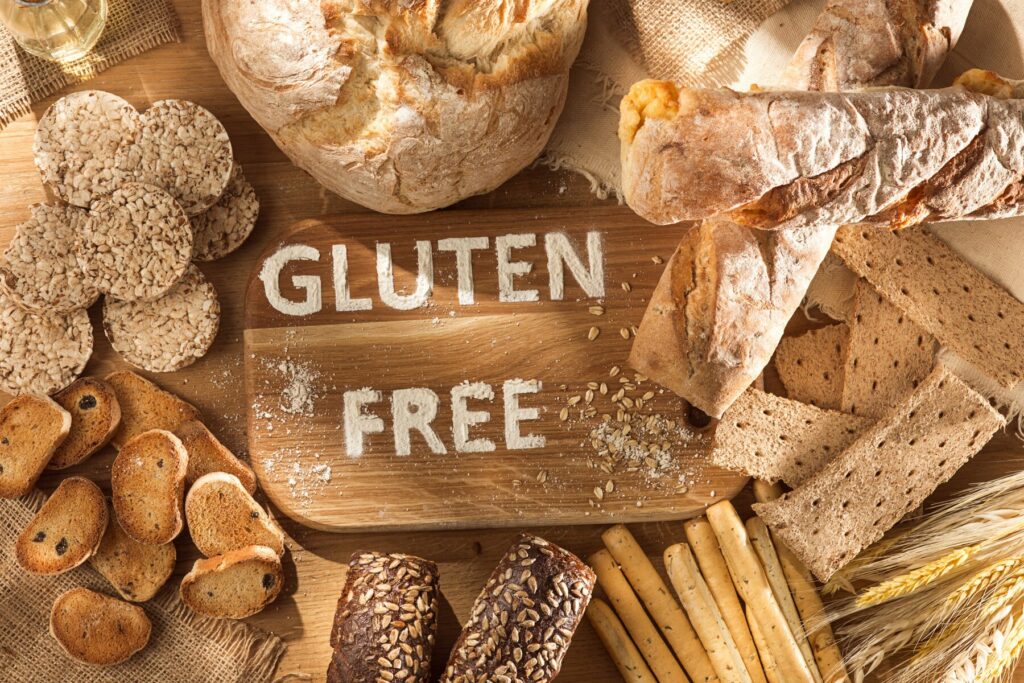Welcome to our comprehensive guide on diet trends myths, nutrition, and effective strategies. In today’s world, it’s easy to get overwhelmed by the plethora of diet trends and conflicting information. That’s why we’re here to debunk common misconceptions and provide you with evidence-based insights to help you navigate the world of nutrition.
Understanding what truly works and what’s just hype is crucial for making informed decisions about your diet. With so many fads and misleading claims out there, it’s essential to separate fact from fiction.
Throughout this article, we’ll explore popular diet trends, such as low-carb diets, intermittent fasting, clean eating, detoxes and cleanses, the Paleo diet, gluten-free diets, fast-food alternatives, the ketogenic diet, and supplements. We’ll provide you with the latest scientific research and expert opinions, empowering you to sift through the noise and adopt strategies that are backed by evidence.
When it comes to nutrition, the key is finding sustainable and effective strategies that work for you. Our goal is to equip you with the knowledge and tools necessary to achieve your health and wellness goals, while avoiding unnecessary myths and misconceptions.
Remember, in this journey, it’s essential to consult with healthcare professionals and registered dietitians for personalized advice. Now, let’s explore the world of diet trends, separate the myths from the truth, and discover what truly works for optimal nutrition and well-being.
The Truth Behind Low-Carb Diets and Weight Loss

When it comes to losing weight, low-carb diets have gained immense popularity as a quick and effective solution. But do they really live up to the hype? Let’s dive deeper into the science behind low-carb diets and explore whether they are truly effective for weight loss.
Low-carb diets, as the name suggests, involve reducing the intake of carbohydrates while increasing the consumption of protein and fats. The idea behind this approach is that by limiting carbs, the body will enter a state of ketosis, where it burns stored fat for fuel instead of glucose.
Several studies have shown that low-carb diets can indeed lead to significant weight loss. For example, a study published in the Annals of Internal Medicine found that individuals following a low-carb diet lost more weight in the first six months compared to those on a low-fat diet.
However, it’s important to note that the initial weight loss on a low-carb diet is primarily due to water loss rather than fat loss. This is because carbohydrates are stored in the body as glycogen, which holds onto water. As glycogen stores are depleted, so is excess water, giving the illusion of rapid weight loss.
Furthermore, the long-term effectiveness of low-carb diets for sustained weight loss is still a topic of debate among experts. Some studies suggest that individuals on low-carb diets may experience weight regain after the initial phase of rapid weight loss.
It’s also worth considering the potential drawbacks of low-carb diets. Restricting carbohydrates can lead to nutrient deficiencies, as many essential vitamins and minerals are primarily found in carb-rich foods such as fruits, vegetables, and whole grains. Additionally, the elimination of certain food groups may result in a monotonous and unbalanced diet.
Benefits of Low-Carb Diets for Weight Loss
While there may be some limitations, low-carb diets do offer certain benefits for weight loss. Research has shown that low-carb diets can suppress appetite and reduce cravings, leading to a lower calorie intake. This can be attributed to the increased intake of protein and fats, which promote feelings of satiety and fullness.
Another advantage of low-carb diets is their positive impact on metabolic health. They have been found to improve markers of insulin resistance, blood sugar control, and triglyceride levels, which are important factors in managing weight and reducing the risk of chronic diseases such as type 2 diabetes.
Expert Insights – Dr. Emily Johnson
“Low-carb diets can be effective for weight loss, especially in the short term. However, it’s crucial to ensure that the diet is well-balanced and includes a variety of nutrient-dense foods. Consulting with a registered dietitian can help individuals personalize their low-carb approach and make it sustainable.”
Ultimately, the decision to follow a low-carb diet for weight loss should be based on individual preferences and health goals. It’s essential to consult with a healthcare professional or registered dietitian before embarking on any restrictive diet to ensure it is safe and suitable for your specific needs.
| Pros | Cons |
|---|---|
| May lead to initial rapid weight loss | Potential nutrient deficiencies |
| Can suppress appetite and reduce cravings | Limited food variety and monotony |
| Improves markers of metabolic health | Possible weight regain after initial phase |
The Truth About Clean Eating
In recent years, clean eating has gained significant popularity as a wellness trend. But amidst the buzz, it’s important to understand what clean eating truly means and whether it’s a sustainable and evidence-based approach to nutrition. Let’s delve into the principles behind clean eating and separate fact from fiction.
The Principles of Clean Eating
At its core, clean eating emphasizes the consumption of whole, minimally processed foods. This means focusing on fresh fruits and vegetables, lean proteins, whole grains, and healthy fats. Clean eaters prioritize real, unprocessed ingredients and avoid artificial additives, preservatives, and refined sugars.
By following the principles of clean eating, individuals aim to nourish their bodies with nutrient-dense foods while avoiding those that may be detrimental to their health. It promotes a back-to-basics approach and encourages mindful choices in the pursuit of better overall well-being.
Evidence-Based Support
While clean eating has gained popularity, it’s essential to evaluate its evidence-based support. While there is no strict scientific definition or research specifically focused on clean eating, the underlying principles align with established guidelines for healthy eating.
The emphasis on whole, unprocessed foods rich in essential nutrients, such as vitamins, minerals, and fiber, is consistent with evidence-based recommendations for a balanced diet. Studies have consistently shown that a diet based on whole foods has a positive impact on health outcomes, including reducing the risk of chronic diseases like heart disease, type 2 diabetes, and certain cancers.
Maintaining a Balanced Perspective
While clean eating can be a valuable approach to nutrition, it’s essential to maintain a balanced perspective. The rigidity often associated with clean eating can lead to restrictive behaviors and an unhealthy relationship with food.
“Clean eating should not become an obsession or lead to disordered eating patterns. It’s important to find a sustainable balance that prioritizes both physical and mental well-being.” – Dr. Nutrition Expert
Debunking the Myths of Detoxes and Cleanses
Detoxes and cleanses have become popular methods for individuals to improve their health and rid their bodies of toxins. However, it’s crucial to separate fact from fiction when it comes to the effectiveness of these practices. Let’s examine the science behind detoxes and cleanses and whether they live up to their claims.
Many detoxes and cleanses claim to flush toxins from the body, resulting in increased energy, weight loss, and improved overall well-being. Supporters argue that these practices can reset the body’s natural balance and promote better health. However, does the scientific evidence support these claims?
The truth is, our bodies have built-in detoxification mechanisms that work efficiently to eliminate toxins without the need for extreme measures. The liver, kidneys, and lymphatic system are responsible for filtering and removing waste products from the body. This natural detoxification process occurs continuously, regardless of whether we are following a specific detox program.
While detoxes and cleanses may lead to temporary weight loss or feelings of increased energy, these effects are primarily due to processes such as water loss and calorie restriction, rather than the elimination of toxins. Additionally, long-term adherence to restrictive detox programs can have negative consequences on our overall health and well-being.
It’s important to note that detoxes and cleanses often lack scientific evidence to support their claims. Many of these programs make sweeping statements without providing substantial research or scientific backing. As a result, it’s essential to approach detoxes and cleanses with caution and consult with healthcare professionals before embarking on any detox program.
“Detoxes and cleanses may lead to temporary weight loss or increased energy, but the effects are primarily due to processes such as water loss and calorie restriction, rather than the elimination of toxins.”
Instead of relying on short-term detoxes and cleanses, focusing on long-term, sustainable lifestyle changes can promote overall health and well-being. Consuming a balanced diet, rich in whole foods, and staying hydrated are effective strategies for supporting the body’s natural detoxification processes.
| Detoxes and Cleanses Myths | Reality |
|---|---|
| Detoxes and cleanses eliminate toxins from the body. | The body’s natural detoxification system efficiently eliminates toxins without the need for extreme measures. |
| Detoxes and cleanses promote sustainable weight loss. | Weight loss from detoxes and cleanses is primarily due to water loss and calorie restriction, not the elimination of toxins. |
| Detoxes and cleanses provide long-term health benefits. | There is limited scientific evidence linking detoxes and cleanses to long-term health improvements. |
| Detoxes and cleanses are necessary for overall well-being. | Focusing on long-term, sustainable lifestyle changes, such as a balanced diet and hydration, is key to supporting overall health. |
Exploring the Paleo Diet: Ancient Wisdom or Modern Myth?

The Paleo diet, also known as the Paleolithic diet or caveman diet, has gained considerable popularity in recent years. This dietary approach claims to replicate the eating habits of our ancient ancestors from the Paleolithic era. But is it a sustainable and balanced approach to nutrition? Let’s dive into the research on the Paleo diet and dissect its pros and cons.
Proponents of the Paleo diet believe that our bodies are still genetically adapted to the diet of our hunter-gatherer ancestors. They argue that by adopting a Paleo diet, which mainly consists of lean meats, fish, fruits, vegetables, nuts, and seeds, we can improve our overall health and well-being.
One of the key principles of the Paleo diet is the exclusion of processed foods, grains, legumes, and dairy products. This emphasis on whole, unprocessed foods aligns with recommendations for a healthier diet. By eliminating refined sugars, grains, and processed foods, individuals following the Paleo diet may experience weight loss, improved blood sugar control, and reduced inflammation.
The Pros of the Paleo Diet:
- Emphasizes whole, unprocessed foods
- May lead to weight loss and improved blood sugar control
- Rich in fruits and vegetables, providing essential vitamins and minerals
- Increased consumption of healthy fats from nuts, seeds, and avocados
- May reduce inflammation due to the elimination of processed and inflammatory foods
The Cons of the Paleo Diet:
- Elimination of grains and legumes may lead to nutrient deficiencies
- Excludes dairy products, which are a valuable source of calcium and other nutrients
- Restricts certain food groups, making it challenging to meet all nutritional needs
- Higher consumption of red meat may increase the risk of certain health conditions
- May be difficult to sustain long-term due to the restrictive nature of the diet
It is important to note that the research on the Paleo diet is limited, and further studies are needed to fully understand its long-term effects on health. Additionally, the Paleo diet may not be suitable for everyone, particularly those with specific dietary restrictions or medical conditions.
In conclusion, while the Paleo diet emphasizes whole, unprocessed foods and can potentially lead to positive health outcomes, it may also have limitations and may not be suitable or sustainable for everyone. As with any dietary approach, it is important to consult with a healthcare professional or registered dietitian before making significant changes to your eating habits.
| Pros | Cons | |
|---|---|---|
| Emphasizes whole, unprocessed foods | May lead to weight loss and improved blood sugar control | Elimination of grains and legumes may lead to nutrient deficiencies |
| Rich in fruits and vegetables, providing essential vitamins and minerals | Increased consumption of healthy fats from nuts, seeds, and avocados | Excludes dairy products, which are a valuable source of calcium and other nutrients |
| May reduce inflammation due to the elimination of processed and inflammatory foods | Restricts certain food groups, making it challenging to meet all nutritional needs | |
| Higher consumption of red meat may increase the risk of certain health conditions | ||
| May be difficult to sustain long-term due to the restrictive nature of the diet |
The Truth About Gluten-Free Diets

Gluten-free diets have skyrocketed in popularity in recent years, with many people opting to eliminate gluten from their daily meals. But are gluten-free diets necessary for everyone, or is it just another health trend?
In order to understand the validity of gluten-free diets, it’s important to first grasp the role of gluten in our diet. Gluten is a protein found in wheat, barley, and rye that gives dough its elasticity and allows bread to rise. For individuals with celiac disease, consuming gluten can trigger a severe autoimmune response that damages the small intestine. As a result, those with celiac disease must strictly avoid gluten in any form.
However, it’s estimated that only around 1% of the population has celiac disease. For the remaining 99% of individuals, going gluten-free may be unnecessary and even potentially detrimental to their health. In fact, a gluten-free diet can lead to nutritional deficiencies, as many gluten-containing foods are fortified with essential vitamins and minerals.
While some individuals may experience gluten sensitivity or non-celiac gluten sensitivity, the scientific evidence supporting this condition is limited. Experts suggest that other components of wheat and not necessarily gluten itself may be responsible for the symptoms experienced by those who claim to be sensitive to gluten.
Ultimately, the decision to adopt a gluten-free diet should be based on individual needs and consultation with a healthcare professional. For individuals with diagnosed celiac disease or gluten sensitivity, a gluten-free lifestyle is crucial. However, for the majority of the population, there is no strong scientific evidence supporting the need to eliminate gluten from their diets.
The Truth About Fast-Food Alternatives: Are They Really Healthier?
When it comes to fast food, many people are seeking healthier alternatives. But do these options truly live up to their promises? Let’s take a closer look at the nutritional value of fast-food alternatives and provide tips for making healthier choices.
Evaluating Nutritional Value
Fast-food alternatives often boast about being low in calories or fat. While some options may indeed be healthier than traditional fast food, it’s essential to make informed choices. Here are a few key factors to consider:
- Ingredients: Pay attention to the quality of ingredients used in fast-food alternatives. Opt for options that include whole foods, lean proteins, and plenty of fruits and vegetables.
- Macronutrients: Consider the balance of macronutrients like carbohydrates, proteins, and fats. Look for options that provide a good balance and are not overly processed.
- Sodium and Sugar: Be wary of excessive sodium and sugar content, as they can contribute to health issues when consumed in large amounts. Compare nutrition labels to make the best choices.
Tips for Making Healthier Choices
While fast-food alternatives can be a convenient option, it’s essential to choose wisely. Here are some tips to help you make healthier choices:
- Research and Plan: Look up nutritional information and reviews of fast-food alternatives before making a decision. Planning ahead can help you make healthier choices.
- Customize Your Order: Many fast-food alternatives allow you to customize your meal. Opt for healthier ingredients, such as swapping out fried options for grilled alternatives, and choose smaller portion sizes.
- Limit Processed Ingredients: Try to avoid fast-food alternatives that heavily rely on processed ingredients. Look for options with whole, natural foods.
- Include Side Salads or Vegetables: Adding side salads or vegetables can help increase your intake of nutrients and fiber while decreasing the overall calorie density of your meal.
- Stay Hydrated: Instead of sugary beverages, opt for water or unsweetened drinks to stay hydrated without adding unnecessary calories.
Remember, moderation is key. While fast-food alternatives can offer healthier options, it’s essential to balance them with a well-rounded diet that includes whole foods, fresh ingredients, and plenty of variety. By making informed choices and implementing these tips, you can enjoy fast food in a healthier way.
Examining the Ketogenic Diet: An Effective Weight Loss Strategy?
The ketogenic diet has gained significant attention as a potential weight loss strategy. But is it a sustainable and healthy option? Let’s take a closer look at the science behind the ketogenic diet and explore its potential risks and benefits.
The ketogenic diet is a low-carb, high-fat diet that aims to shift the body into a state of ketosis. This metabolic state occurs when the body starts using ketones, produced from fats, as its primary source of energy instead of carbohydrates.
Advocates of the ketogenic diet claim that this approach can lead to rapid weight loss by forcing the body to burn stored fat for fuel. By significantly reducing carbohydrate intake, the body is deprived of its primary energy source, prompting it to tap into fat stores for energy.
Research studies have shown promising results when it comes to weight loss on the ketogenic diet. One study published in the Journal of Clinical Endocrinology & Metabolism found that individuals following a ketogenic diet experienced greater weight loss compared to those on a low-fat diet. The study also revealed improvements in markers of cardiovascular health.
However, it’s crucial to note that the ketogenic diet may not be suitable for everyone. It is a restrictive eating plan that eliminates many carbohydrate-rich foods, including grains, fruits, and some vegetables. This restriction can make it challenging to obtain adequate nutrients, such as fiber and certain vitamins and minerals.
Additionally, the ketogenic diet may have potential side effects, commonly known as the “keto flu.” These side effects can include fatigue, irritability, and gastrointestinal discomfort as the body adapts to the new energy source.
While the ketogenic diet may be effective for short-term weight loss, its long-term sustainability and overall impact on health are subjects of ongoing research and debate. It is essential to consult with a healthcare professional or registered dietitian before embarking on any restrictive diet plan.
The Potential Benefits of the Ketogenic Diet:
- Achieving ketosis may promote weight loss by increasing fat burning.
- Some studies suggest that the ketogenic diet may help improve insulin sensitivity and blood sugar control, making it beneficial for individuals with type 2 diabetes.
- The diet has shown potential in reducing seizures in individuals with epilepsy, especially in children with drug-resistant epilepsy.
Factors to Consider Before Starting the Ketogenic Diet:
- It is a highly restrictive diet that eliminates many carbohydrate-rich foods.
- The transition to a ketogenic diet may cause temporary side effects, such as the “keto flu.”
- It may be challenging to obtain sufficient fiber, vitamins, and minerals from the limited food choices on the ketogenic diet.
- Individuals with certain medical conditions or on certain medications should consult their healthcare provider before starting the ketogenic diet.
The Truth About Supplements: Do They Really Work?
With a wide array of supplements on the market, it can be challenging to determine which ones are worth incorporating into your diet. Supplements are popular among individuals looking to improve their health and well-being, but do they truly deliver on their promises?
Research shows that some supplements can provide benefits when used appropriately and in specific circumstances. However, it’s important to understand that supplements are not a magic solution or a substitute for a balanced diet and healthy lifestyle.
Before considering any supplement, it’s crucial to consult with a healthcare professional or a registered dietitian. They can assess your individual needs and guide you on the right path based on your health goals and existing conditions. They will help you determine if a supplement is necessary and safe for you.
Remember, the effectiveness of supplements can vary depending on factors such as individual physiology, diet, and overall health status. It’s also essential to be cautious about misinformation and exaggerated claims surrounding supplements.
When considering supplements, it’s essential to prioritize evidence-based products that have been studied extensively and backed by scientific research. Look for brands that undergo rigorous testing, adhere to quality standards, and provide transparent information about their ingredients and manufacturing processes.
Here are a few key points to consider when evaluating supplements:
- Understand your specific nutritional needs and goals.
- Identify supplements that address those needs and have reliable scientific evidence supporting their efficacy.
- Check the dosage recommendations and ensure they align with your requirements.
- Consider any potential interactions with medications or existing health conditions.
- Look for certified seals or third-party testing to verify the product’s quality and purity.
Keep in mind that supplements should not replace a well-balanced diet. They should be viewed as complementary to a healthy lifestyle, rather than a substitute for proper nutrition.
Ultimately, the decision to incorporate supplements into your diet is a personal one. By approaching supplement use with caution, conducting thorough research, and seeking expert guidance, you can make informed choices that will support your overall well-being.
The Role of Sustainable Eating: Beyond Diet Trends
Beyond specific diet trends, sustainable eating emphasizes the environmental and ethical impact of our food choices. It goes beyond just what we eat and considers how our food is sourced, produced, and consumed.
At its core, sustainable eating promotes a more mindful and responsible approach to our food system, with a focus on reducing our ecological footprint and supporting local and organic farming practices. By prioritizing sustainable food sources, we not only contribute to a healthier planet but also prioritize our long-term health and well-being.
But what does sustainable eating actually look like in practice? It involves making conscious choices that have a positive impact on the environment, such as:
- Choosing locally sourced and seasonal produce to reduce transportation emissions
- Opting for organic and pesticide-free options to minimize chemical exposure
- Supporting sustainable farming practices that prioritize soil health and biodiversity
- Reducing food waste by practicing mindful consumption and proper storage
- Supporting ethical treatment of animals by choosing humanely raised and grass-fed options
By adopting sustainable eating habits, individuals can not only improve their own health but also contribute to a more sustainable and equitable food system. It’s a holistic approach that extends beyond personal diet choices and aims to create positive change on a larger scale.
“Sustainable eating is about considering the long-term impact of our food choices on the planet and future generations. It’s a way of nourishing ourselves while also caring for the environment.”
One key aspect of sustainable eating is the emphasis on plant-based foods. By incorporating more fruits, vegetables, whole grains, legumes, and nuts into our diets, we not only reduce our carbon footprint but also benefit from the many nutrients and health benefits these foods offer. Plant-based eating has been linked to lower risks of chronic diseases, improved weight management, and increased overall well-being.
While adopting a fully plant-based diet is not for everyone, even small changes can make a big difference. Consider incorporating more meatless meals into your weekly routine or experimenting with new plant-based recipes. Every step towards sustainable eating contributes to a healthier planet and a brighter future.
Finale
Understanding the truth behind diet trends myths is essential for making informed decisions about your nutritional choices. By debunking common misconceptions and providing evidence-based insights, we hope to empower you to adopt sustainable and effective strategies for your health and well-being.
Remember, it’s essential to consult with healthcare professionals and registered dietitians for personalized advice. They can help you navigate the world of diet trends and provide guidance tailored to your unique needs and goals.
By staying informed and seeking professional guidance, you can confidently navigate the complex landscape of diet trends and make choices that support your long-term health and well-being. Remember, sustainable changes and evidence-based strategies are key to achieving lasting results.
FAQ

What are some common diet trend myths?
There are several diet trend myths that people often fall victim to. Some of the most common include the belief that a particular diet can magically melt away fat, that cutting out entire food groups is necessary for weight loss, and that supplements alone can replace a balanced diet.
Are low-carb diets effective for weight loss?
Low-carb diets have been shown to be effective for weight loss in some individuals. However, it’s important to note that weight loss ultimately comes down to creating a calorie deficit, and low-carb diets are just one approach to achieve this. It’s best to consult with a healthcare professional or registered dietitian to determine the most suitable approach for your individual needs.
What is intermittent fasting, and is it an effective approach to weight management?
Intermittent fasting involves cycling between periods of fasting and eating. While some studies suggest that it may have benefits for weight management and metabolic health, it’s not a guaranteed weight loss strategy. As with any dietary approach, it’s essential to consider individual factors and consult with a healthcare professional before starting intermittent fasting.
Is clean eating a sustainable and evidence-based approach to nutrition?
Clean eating is a loose term that typically refers to consuming whole, unprocessed foods and minimizing the intake of added sugars, unhealthy fats, and artificial additives. While these principles can promote a healthy diet, the concept of “clean” eating can lead to restrictive behaviors and an unhealthy relationship with food. It’s important to focus on balanced nutrition rather than strict labels.
Do detoxes and cleanses live up to their claims?
Detoxes and cleanses promise to remove toxins from the body and improve overall health. However, these claims are not supported by scientific evidence. Our bodies have natural detoxification systems in place, and extreme cleanses or restrictive diets can actually be harmful. It’s best to focus on long-term, sustainable dietary changes that support overall health.
Is the Paleo diet a sustainable and balanced approach to nutrition?
The Paleo diet is based on the idea of consuming foods that were available to our ancestors during the Paleolithic era. While this diet encourages the consumption of whole foods, it eliminates entire food groups such as grains and legumes. This can make it challenging to get all the necessary nutrients for a balanced diet. It’s essential to speak with a healthcare professional or registered dietitian before considering the Paleo diet.
Are gluten-free diets necessary for everyone?
Gluten-free diets are essential for individuals with celiac disease or gluten sensitivity. However, for the majority of the population, there is no need to eliminate gluten unless advised by a healthcare professional. Whole grains that contain gluten can actually be a part of a healthy diet, as they provide essential nutrients and fiber.
Are fast-food alternatives really healthier?
While fast-food alternatives may offer slightly better nutrition than traditional fast food, they are still typically high in sodium, unhealthy fats, and calories. It’s important to remember that the best way to make healthier choices is by opting for whole, unprocessed foods and preparing meals at home whenever possible.
Is the ketogenic diet a sustainable and healthy weight loss option?
The ketogenic diet is a high-fat, low-carb diet that can induce a state of ketosis in the body. While it may lead to initial weight loss due to water loss and reduced calorie intake, the long-term sustainability and potential health risks of the ketogenic diet are still being investigated. It’s crucial to consult with a healthcare professional or registered dietitian before embarking on a ketogenic diet.
Do supplements really work?
The effectiveness of supplements varies greatly depending on the specific supplement and individual factors. While some supplements have been shown to be beneficial in certain cases, they are not a magic solution and should not replace a balanced diet. It’s best to consult with a healthcare professional or registered dietitian to determine whether supplements are necessary for your individual needs.
What is sustainable eating, and how does it contribute to health?
Sustainable eating involves making food choices that are not only nutritious but also consider the environmental and ethical impact of our food systems. This includes opting for locally sourced, seasonal produce, reducing food waste, and choosing plant-based options more frequently. Sustainable eating can contribute to long-term health by promoting a diet that is both nutritious and environmentally responsible.






